Assassin’s Creed on all fronts with Mirage, Nexus VR and Jade – News
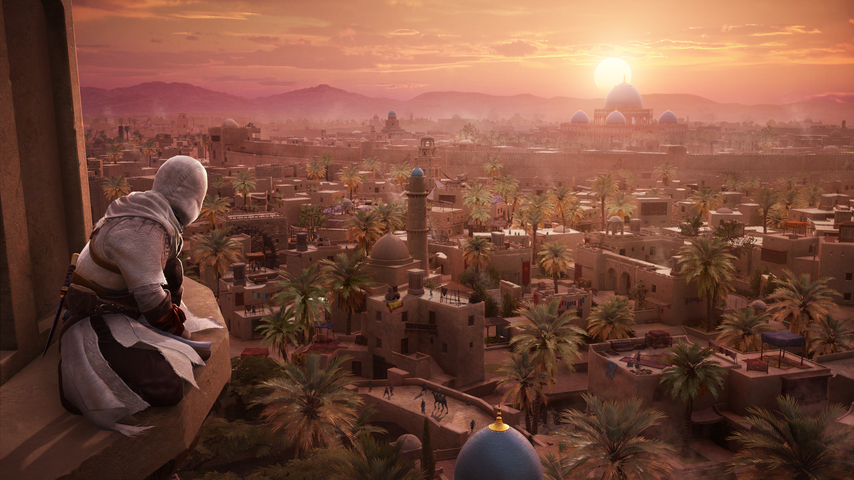
Kassandra, Ezio and Connor in VR and against all
As promised during the Meta Quest Gaming Showcase on June 1st, Assassin’s Creed Nexus VR was entitled to his few minutes of presentation. The only survivor of the alliance between Meta and Ubisoft, which also had a Splinter Cell VR game at the beginning, this Assassin’s Creed marks Ubisoft’s great return to the field of virtual reality, a segment in which the French publisher wanted to pioneer but which he abandoned little by little in front of the slow growth of the market. And let’s be clear-headed, faced with the lack of results that Ubisoft has been suffering from for the past few years, the Guillemot family studios have many other priorities than to participate in the still hypothetical take-off of VR. Still, Ubisoft must honor its partnership with Meta and is therefore preparing this 100% virtual reality Assassin’s Creed for Quest platforms.
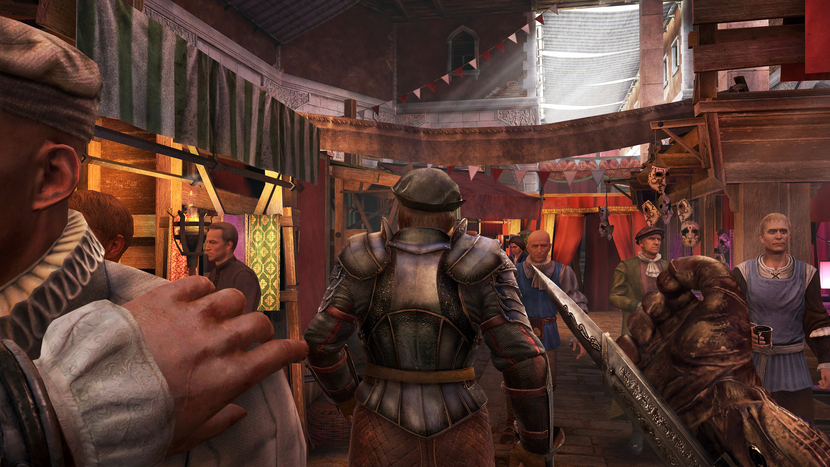
Piloted by Red Storm Entertainment (and 7 other studios) under the leadership of creative director David Votypka, Assassin’s Creed Nexus VR navigates between different well-known eras of the franchise. Thanks to a narrative pretext linked to Abstergo’s experiences in the modern world, the game’s campaign will make us alternate between Kassandra at the time of ancient Greece, Ezio during the Italian Renaissance and Connor in the midst of the American revolution. The main peculiarity of this project, VR switches the action to a first-person view, a first in fifteen years of assassinations through time. And since the levels of the game are presented in the form of vertical sandboxes that can be explored with the same freedom as usual, and whose objectives can be accomplished from different approaches, the formula does not fail to remind us of Dishonored. Assassin’s blade, tomahawk, bow, crossbow, knives, smoke bombs, angel’s jump, parkour… the ingredients of the traditional Assassin’s Creed are there. Regarding movements, Ubisoft has prepared teleportation locomotion options and vignetting to block peripheral vision and limit breakage in the most sensitive. Options have even been integrated for the attention of people prone to vertigo.
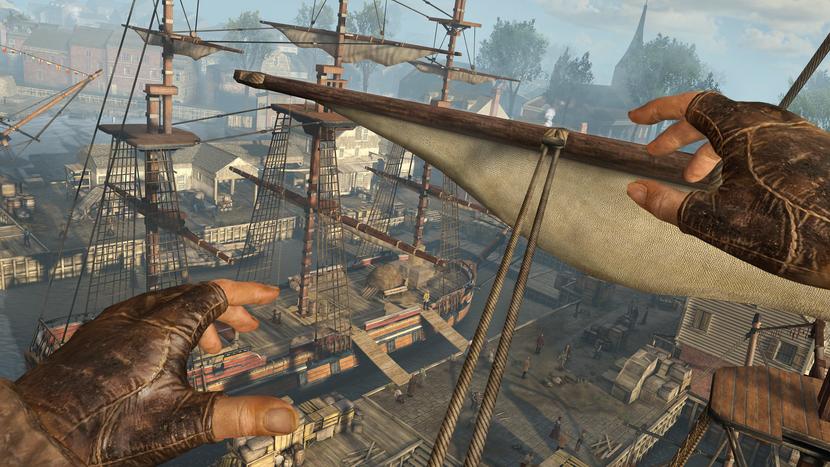
What more could you ask for besides a release on a larger number of platforms, such as the PlayStation VR2? Unfortunately, we do not know the exact nature of his agreement with Meta, but note that Ubisoft is credited as the sole developer and publisher of the game, which does not seem to guarantee a lifetime exclusivity. By the way, you have probably told yourself that what is shown seems way too clean for a Quest. And in fact, the video surreptitiously specifies that the few gameplay clips are not and that everything is only pre-rendered cinematic. A slightly strange choice when the release of the game must take place this fall.
Jade to the rescue
With Assassin’s Creed Codename Jade, Ubisoft hopes to impose the franchise on the juicy mobile market. To do this, he partnered with Level Infinite, a Tencent Games label, and opted in no way coincidentally for a Chinese setting. We are more exactly in the 3rd century BC, in ancient China freshly unified under the reign of the imperial Qin dynasty. Opening a new chapter in the long history of China, the scenario of the game is more exactly located between the events of Assassin’s Creed Odyssey and Assassin’s Creed Origins. The young assassin disciple that we will embody will be fully customizable this time and will explore an open world where we can already see the iconic Great Wall and visit the capital of the time, Xianyang.
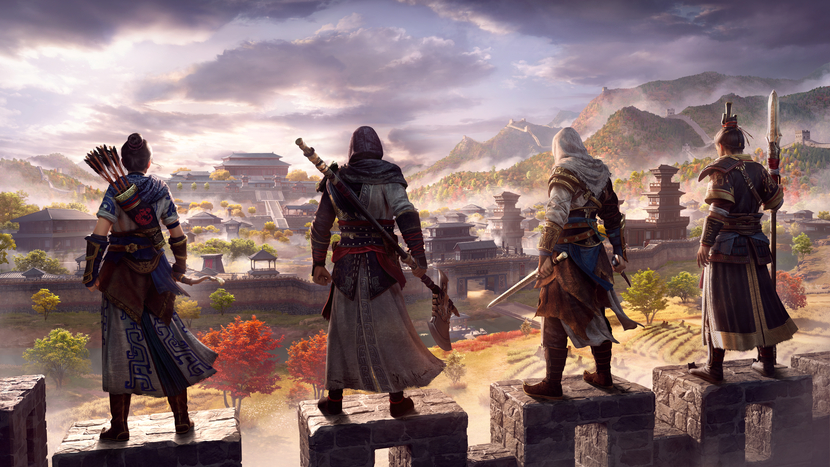
Developed with the Unreal Engine, the title displays real ambitions in terms of realization, even if the biggest challenge seems here to transcribe on touch screen the main features of the franchise (assassinations, parkour, combat and exploration of an open world). On the other hand, as always when we are presented with a mobile game, nothing about the details of the economic model. In the meantime, the development team has just opened the pre-registrations to participate in the first closed beta test that will take place during the summer. As the game is still far from being finished, only a small group of players will be invited to give their opinion on the work in progress.
O Glamour, o despair
Finally, let’s make way for the main course served to us by the director of narration Sarah Beaulieu and the director of animation Benjamin Potts, two executives from Ubisoft Bordeaux, the studio that pilots Assassin’s Creed Mirage. A key moment for this studio founded in 2017 and which has more than 400 employees, more than half of whom are busy on the game in question. Counting the participation of 11 other Ubisoft studios, more than 500 people around the world are busy on Assassin’s Creed Mirage, despite its more modest size than the last opuses to date. Presented as a reminder as a tribute to the first Assassin’s Creed, driven by the desire to refocus on the three basic pillars (parkour, infiltration, assassination) this episode takes us back to the Middle East and more exactly to the Baghdad of the 9th century, an open city whose size is comparable to the Paris of Assassin’s Creed Unity or Constantinople Assassin’s Creed Revelations. A notable detail, the presentation does not use the term RPG at any time but rather a narrative action-adventure.
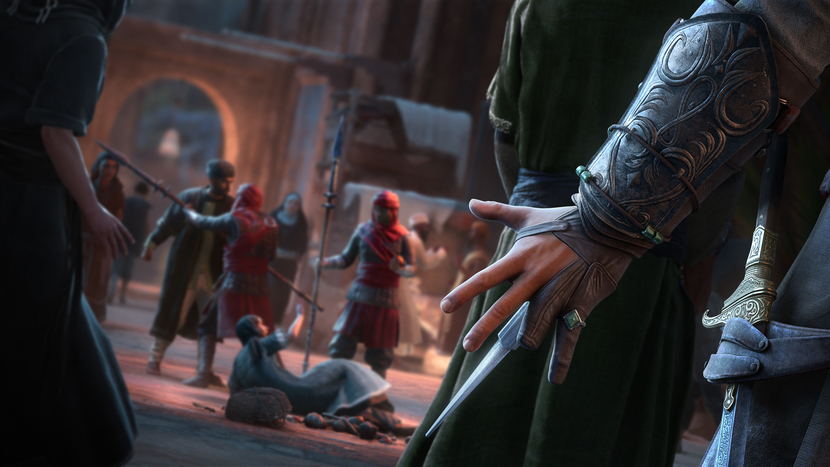
Scenario side, Assassin’s Creed Mirage is located at a key moment in the history of the assassins and more generally of the region. We will follow the evolution of Basim, a young street thief still far from the experienced character discovered in Assassin’s Creed Valhalla. In a bad position, Basim will be saved and then trained by the brotherhood of assassins to become a new weapon dedicated to their cause, as illustrated by the trailer of the story broadcast for the occasion. Between visions of nightmares that have haunted him forever and questions about his own identity, Basim however seems to question the path he has chosen. He will at least be able to count on the advice of his childhood friend Nehal, his fellow assassins Roshan and Fuladh, as well as a historical figure like Ali ben Muhammad, leader of the Zanj revolt.
Investigate, hunt, strike and escape: it is through these four actions that Benjamin Potts summarizes the central loop ofAssassin’s Creed Mirage, before presenting gameplay to illustrate his points. “We have reworked the NPC detection system, improved the artificial intelligence of enemy reactions and recreated the assassination animations,” we are told. In addition to his basic tools (assassin’s blade, sword, dagger), Basim has a panel of five gadgets, including smoke bombs, sleeping darts and knives to use as deadly projectiles. The confrontation is considered here as the solution of last resort, but the hand-to-hand combat still benefits from new animations specific to Assassin’s Creed Mirage, including kills, chains and parries. The infiltration skills are not left out: the gameplay sequence notably shows Basim marking three targets before eliminating them on autopilot as if he were teleporting. We can also entrust the raptor Enkidu with the task of spotting a target from the skies to plan an attack without getting wet.
Assassin’s Creed Mirage will be released on October 12, 2023 at a price of 50 euros for the standard edition, 60 for the deluxe edition, prices a little lower for this episode more compact than the last gargantuan opuses. An additional quest based on Ali Baba and the Forty Thieves will be offered on pre-order.








